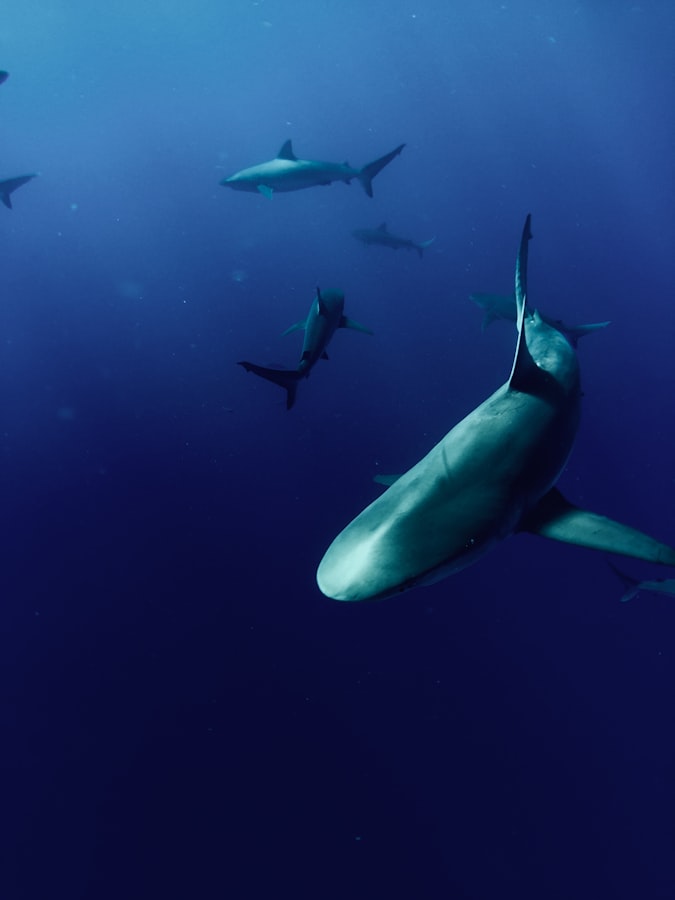
How many sharks will die to protect us against Coronavirus? It’s a real question and the arguments have begun
just like the flu-jab, the Covid-19 vaccine will probably contain shark squalene. So if you vaccinate everybody on the planet, the argument goes, that’s a lot of squalene. Throw-in a notoriously dark supply chain and sharks are in trouble. Marine NGO ‘Shark Allies’ estimate half a million deep sea sharks are needed to extract enough squalene for Covid-19 vaccines. So what’s going on?

The facts
Unlike fish, sharks have no swim bladder. Instead they have large livers that are saturated with oil to maintain their buoyancy in the water – in some species 80% of the weight of their liver is oil. Squalene is an organic compound obtained from this oil, used as an adjuvant (we’ll get to that) by the pharmaceutical industry. It typically takes 2,500-3,000 sharks to generate a ton of industrial squalene.
An adjuvant is added to a vaccine to make the immune system produce more antibodies and thus longer-lasting immunity, minimizing the dose of antigen needed. MF59 is a common adjuvant that contains shark-derived squalene, that’s the one going into many Covid-19 vaccine candidates.
The arguments
There’s already concern over the sustainability of deep-sea squalene fisheries. A 2011 report by the Food and Agriculture Organization revealed a largely unregulated industry which is over-exploiting stocks.

Deep-sea sharks tend to have more oil in their livers which is why they’re targeted. However most cold- and deep-water animals are vulnerable to exploitation through overfishing because they tend to grow slowly and reproduce infrequently.
So what are the answers? For Covid-19 we are theoretically vaccinating 7.8 billion people, twice. That’s 15.6 billion doses using 10 mg of squalene per dose which means that Shark Allies estimate of 500,000 dead sharks isn’t implausible.

Sadly however, that’s a drop in the ocean. An estimated 100 million sharks a year are currently killed for their fins, meat or as by-catch. Potentially, saving these livers for vaccines would have no effect on vulnerable seep-sea shark populations. Much of this shark fishing is illegal and unregulated however, so the livers from millions of finned or butchered sharks simply sink into the depths with the dead or living animal.
Are there any alternatives to shark squalene? Well, yes and it’s surprisingly easy and available. Most organisms produce squalene and we can derive the chemically identical squalane (C₃₀H₅₀) from plant sources. Indeed, prices for plant and shark-derived squalene are currently very similar.

A shift to non-animal-derived sources of squalene, which are similar in cost and identical in effectiveness … could better support conservation and public health goals
Catherine Macdonald & Joshua Soll – Rosenstiel School of Marine and Atmospheric Science, University of Colorado Boulder, Department of Ecology and Evolutionary Biology

An infrastructure shift towards sustainable plant-based sources rather than relying on shark fisheries would forever reduce the pressure on deep-sea sharks, not just for Coronavirus but for all vaccines. Such a move could also lead the way for other industries that use shark squalene, such as the ravenous cosmetics industry which currently consumes the lion’s share.
We are in no way prioritizing sharks over human health, but we simply have to ask why more sustainable squalene sources are not being considered as an option
Stefanie Brendl, founder of Shark Allies
GlaxoSmithKline manufactures an adjuvant with shark-based squalene to support multiple Covid-19 vaccine candidates. In a recent statement the company said research into squalene alternatives is ongoing, but they won’t be an option within the time frame of the pandemic.

If we are going to continue to rely on shark-derived squalene, we should ask for clarity and specificity from pharmaceutical companies about their supply chains, the species being harvested for use in vaccines, and the sustainability of that harvest.
You can sign Shark Allies petition here.
SOURCE 1, SOURCE 2, SOURCE 3, SOURCE 4, SOURCE 5, SOURCE 6, SOURCE 7. SOURCE 8, SOURCE 9, SOURCE 10